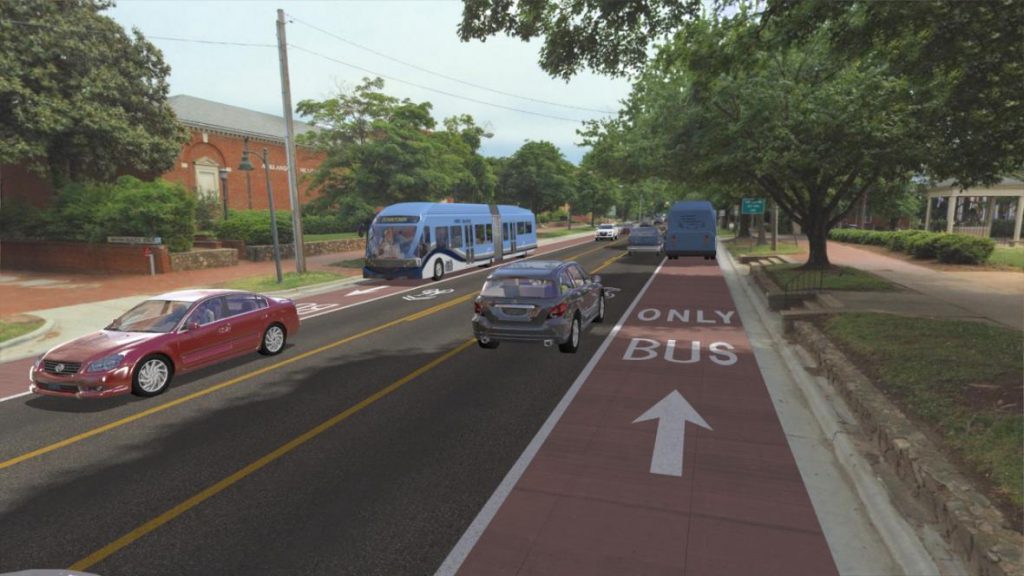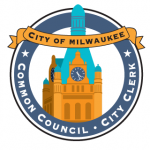Bus Rapid Transit Faces Delays, Higher Costs
Trump administration mismanagement of grant program costing county time and money.
A federal agency, key to the success of Milwaukee County’s East-West Bus Rapid Transit (BRT), has been dragging its feet, unresponsive to requests from the county and causing project delays of up to six months and millions in cost increases.
The BRT project is the first of its kind in Milwaukee County. It will be a 9-mile bus line running from downtown Milwaukee along Wisconsin Avenue out to the Milwaukee County Regional Medical Center in Wauwatosa. The new high-frequency service is supposed to provide shorter travel times along a route that is connected to a number of the county’s highly-used bus lines.
According to an investigation by the U.S. House of Representatives Committee on Transportation and Infrastructure, the Federal Transit Administration is causing project delays and cost overruns throughout the country by poorly managing their Capital Investments Grant (CIG) program. The problems faced by Milwaukee County’s BRT project are widespread, the committee found.
In Milwaukee County, according to documents obtained by Urban Milwaukee, the FTA has already caused up to 6 months in delays and $1 to $2 million in cost increases for Milwaukee’s BRT project. These problems are rooted in the FTA’s failure to communicate grant criteria and, in some cases, changing project requirements after they had already been met, according to the Milwaukee County Department of Transportation (MCDOT).
In December, Donna Brown-Martin, Director of MCDOT said, “They’ve presented very little information in terms of what their criteria are moving forward.”
The majority of funding for the BRT project is expected to come from a Federal Transit Administration (FTA) grant. According to MCDOT more than $38 million, or nearly 80 percent of the BRT’s funding will come from a federal Small Starts Grant, which falls under the FTA’s Capital Investment Grant program. But the FTA has, since the Trump Administration took over, been unresponsive to requests from Milwaukee County seeking information for how to apply for and obtain these grant monies crucial to the BRT project.
In March 2019, U.S. Rep. Peter DeFazio (D-Oregon), chair of the committee on transportation and infrastructure, wrote a letter to Brown-Martin asking for data and communications produced by MCDOT, the FTA and its oversight contractors regarding Milwaukee’s BRT project and the CIG program — which suggested this must be a national problem.
John Rodgers of MCDOT forwarded the letter to the Raisa Koltun, County Executive Chris Abele’s chief of staff, as well as MCDOT officials and the Director of the Milwaukee County Transit System, Dan Boehm. Rodgers wrote, “Clearly we are not the only ones expressing concern about the FTA’s decision-making process.”
In July 2019, planners working on the BRT project provided an update to the County Board’s Committee on Transportation, Public Works and Transit. At that time they told the committee construction would begin in Spring 2020. Now, planners hope construction will start by the middle of that year with completion coming in Fall 2021.
In March, Milwaukee County officials were telling the House of Representatives they expected to sign a grant agreement by the end of 2019. By December, they still had no agreement. Ashley Booth, a transit consultant on the project from HNTB, told the County Board’s Committee on Transportation, Public Works and Transit that they hoped to have the agreement before the county board by the second quarter of 2020.
In March, when MCDOT responded to the House committee, it estimated the project would increase by $1.23 million to a total project cost of more than $54 million. In December, Ashley Booth said that current project costs were “at $56 million.”
Brown-Martin told the committee in December, “Only recently, within the last month, have we been getting any kind of input back from FTA.” They are hoping, she said, that cost overruns can be included in the federal grant agreement they are working on.
If you think stories like this are important, become a member of Urban Milwaukee and help support real, independent journalism. Plus you get some cool added benefits.
MKE County
-
Fellow Judge Testifies in Dugan Case
 Dec 16th, 2025 by Graham Kilmer
Dec 16th, 2025 by Graham Kilmer
-
Key Questions in Dugan Trial Take Shape on First Day
 Dec 15th, 2025 by Graham Kilmer
Dec 15th, 2025 by Graham Kilmer
-
FTA Tells Milwaukee to Crack Down on Fare Evasion — Even Where Fares Don’t Exist
 Dec 12th, 2025 by Graham Kilmer
Dec 12th, 2025 by Graham Kilmer
Transportation
-
Congestion Pricing Cuts Air Pollution in New York City
 Dec 14th, 2025 by Jeff Wood
Dec 14th, 2025 by Jeff Wood
-
FTA Tells Milwaukee to Crack Down on Fare Evasion — Even Where Fares Don’t Exist
 Dec 12th, 2025 by Graham Kilmer
Dec 12th, 2025 by Graham Kilmer
-
Will GOGO’s Bus Service Ever Get Going?
 Dec 9th, 2025 by Jeramey Jannene
Dec 9th, 2025 by Jeramey Jannene






















